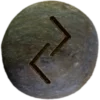Last Updated on October 19, 2024
Table of Contents

Hákonarmál (pronounced: HAH-koh-nahr-mahl) is a skaldic poem from the late 10th century, composed by Eyvindr skáldaspillir. The poem commemorates the death of King Hákon the Good, also known as Hákon Haraldsson, who ruled Norway from 934 to 961 CE. Other spellings of the poem’s name include Hakonarmal and Hákonarmálr.
The poem blends elements of both pagan and Christian traditions, reflecting the time when Christianity was slowly gaining ground in Scandinavia. King Hákon, though raised as a Christian in England, upheld many Norse customs during his reign, including honoring the old gods. This duality in his belief system plays a significant role in Hákonarmál, as it represents the cultural transition of the time.
Hákonarmál describes Hákon’s final battle at the Battle of Fitjar, where he fought against the sons of his brother, Eirik Bloodaxe. Hákon, despite his noble efforts, suffered fatal wounds. The poem portrays Hákon’s heroic death, likening him to the great warriors of old. As he dies, the poem shifts focus to his arrival in Valhalla, the hall of slain warriors. Odin, along with other gods, welcomes Hákon into Valhalla, where he will continue to fight and feast among the honored dead.
The inclusion of both Christian and pagan motifs underscores the complexity of Hákon’s character and the culture of 10th-century Norway. While Hákon was remembered as a king who tried to spread Christianity, Hákonarmál immortalizes him as a hero embraced by the Norse gods in the afterlife.
Elder Futhark Runes Associated with Hákonarmál
The Tiwaz rune represents the themes of Hákonarmál. Associated with the god Týr, Tiwaz symbolizes honor, courage, and sacrifice. Hákon’s heroic death and his dedication to his people align with the rune’s meaning. His brave actions in battle reflect the warrior’s sense of justice and loyalty that Tiwaz embodies.
Importance of Hákonarmál in Asatru
In Asatru, Hákonarmál celebrates the values of bravery, loyalty, and the heroic afterlife in Valhalla. King Hákon’s actions embody the virtues Asatru followers admire: honor in battle, dedication to tradition, and the eventual reward in the afterlife. His story connects the transition from old ways to new, while still embracing the strength of Norse belief.


